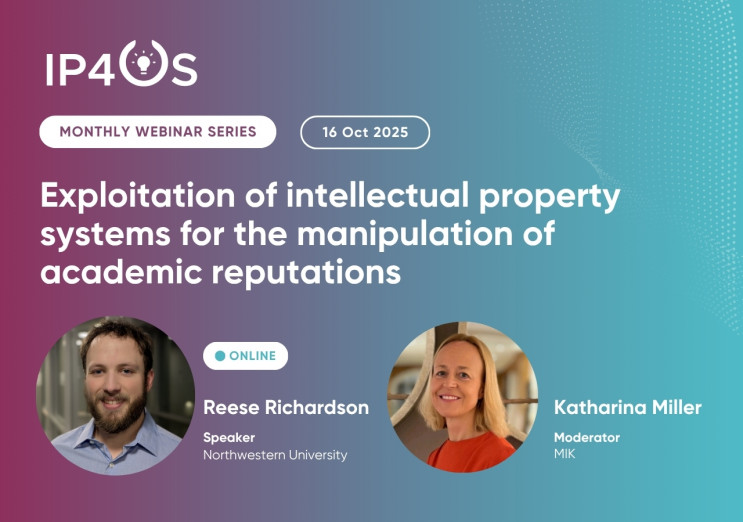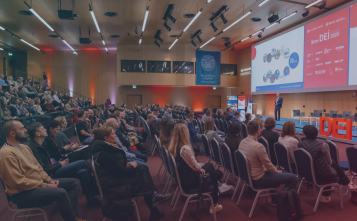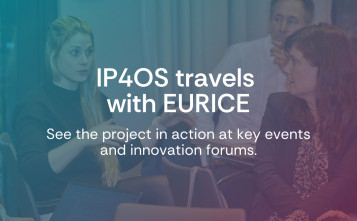
IP4OS webinar explores academic IP exploitation
On 16 October 2025, Miller International Knowledge (MIK) hosted another session of the IP4OS webinar series, featuring Reese Richardson, a metascientist specialising in reproducibility, bias, and scientific fraud.
MIK opened the event by recalling its mission to operate at the intersection of law, ethics, and open science, promoting responsible research practices, strengthening data governance, and fostering ethical and legal readiness for innovation and knowledge valorisation. Within this framework, the IP4OS project explores how intellectual property (IP) systems can enable and protect openness in research, rather than hinder it, by making IP transparent, fair, and responsibly licensed in the context of open and AI-enabled science.
Reese Richardson presented his recent research on how IP systems can be exploited to manipulate academic reputations. His investigation uncovered a large-scale phenomenon in which intermediaries, particularly operating between India and the United Kingdom, sell so-called “UK design patents” to academics seeking to boost their academic scores or meet promotion criteria. These, however, are not actual patents but design registrations, which are granted without novelty review and therefore easy to obtain. Richardson and his team identified thousands of such registrations, often reusing identical images, titles, and even absurd or plagiarised 3D models, ranging from “AI-based humanoids” to a “skin cancer inspection device” that turned out to be a 3D model of a handgun with a screen attached.
The presentation highlighted how quantitative evaluation systems, based on counting publications, citations, and patents, create strong incentives for academic fraud markets, where reputation can be artificially constructed through fake publications and IP filings. The research revealed that this practice is not limited to the UK; similar vulnerabilities exist in other jurisdictions with low-threshold IP registration systems, such as Australia, India, and Germany.
During the discussion, participants explored how such practices could be addressed. Richardson suggested that the most effective approach would be to reform research evaluation systems to focus less on numerical metrics and more on quality, openness, and integrity. On the regulatory side, measures could include stronger applicant verification, better detection of duplicate submissions, and more proportional review mechanisms. Katharina Miller from MIK added that while many of these filings formally comply with procedural requirements, they raise serious questions about material fraud and legal accountability, and that awareness among both academics and regulators is still too limited.
The conversation also touched upon the role of AI in producing fraudulent material. Richardson noted that, so far, most fake designs appear to have been copied from publicly available 3D models, but AI tools could further accelerate the process in the future.
Despite the gravity of the findings, both speakers ended on a constructive note, calling for collaboration between academia, regulators, and ethics experts to safeguard research integrity. As Katharina Miller concluded, “Let’s continue this good fight—it’s essential for everyone committed to research integrity.”
Reese Richardson’s article on the topic was published in the International Journal for Educational Integrity. Further resources include his blog and the open-source project COSIG – Collection of Open Science Integrity Guides, which offers tools and guidance for post-publication peer review.
IP4OS continues to contribute to building responsible, transparent, and FAIR-R (FAIR and responsibly licensed) research ecosystems that align intellectual property systems with the principles of open and trustworthy science.

